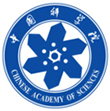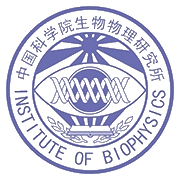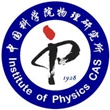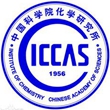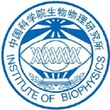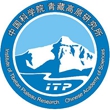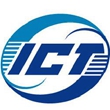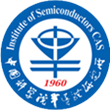Sessions 3:Life Sciences
Philippe J. Sansonetti
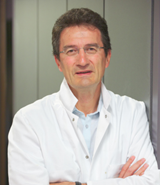
Character introduction
Philippe J Sansonetti
Emeritus Professor, Institut Pasteur Paris
Professsor, Collège de France, Paris
Head, The Center for Microbes, Development and Health, Institut Pasteur Shanghai
Institut Pasteur, 28 rue du Dr Roux,7505 PARIS, FRANCE
Email: philippe.sansonetti@pasteur.fr
philippe.sansonetti@ips.ca.cn
Dr Philippe Sansonetti is professor and head of the Unité de Pathogénie Microbienne Moléculaire at the Pasteur Institute of Paris and chair of Microbiology and Infectious Diseases at the Collège de France. Professor Sansonetti qualified in medicine from the University of Paris in 1979. Following clinical work in France, he established his research career at Institut Pasteur in cellular microbiology and the pathogenesis of enteric infections, particularly Shigella, including vaccine development, and more recently the molecular crosstalks between microbiota and gut epithelium. He is the recipient of numerous honours and awards, including the Louis Jeantet Prize and a Howard Hughes Medical Institute Scholarship. He was awarded two successive ERC grants. He is currently Chief Editor of EMBO Molecular Medicine. Member of the French Academy of Science, US National Academy of Science and the Royal Society.
Emeritus Professor, Institut Pasteur Paris
Professsor, Collège de France, Paris
Head, The Center for Microbes, Development and Health, Institut Pasteur Shanghai
Institut Pasteur, 28 rue du Dr Roux,7505 PARIS, FRANCE
Email: philippe.sansonetti@pasteur.fr
philippe.sansonetti@ips.ca.cn
Dr Philippe Sansonetti is professor and head of the Unité de Pathogénie Microbienne Moléculaire at the Pasteur Institute of Paris and chair of Microbiology and Infectious Diseases at the Collège de France. Professor Sansonetti qualified in medicine from the University of Paris in 1979. Following clinical work in France, he established his research career at Institut Pasteur in cellular microbiology and the pathogenesis of enteric infections, particularly Shigella, including vaccine development, and more recently the molecular crosstalks between microbiota and gut epithelium. He is the recipient of numerous honours and awards, including the Louis Jeantet Prize and a Howard Hughes Medical Institute Scholarship. He was awarded two successive ERC grants. He is currently Chief Editor of EMBO Molecular Medicine. Member of the French Academy of Science, US National Academy of Science and the Royal Society.
Topic: «Microbes Sans Frontières»: A Research Agenda for the 21st Century
Abstract The contemporary world of infectious diseases presents an increasingly complex mosaic of situations, hence an ever-growing challenge for global control. It associates:
1 - “Classical” infectious diseases, largely controlled in high-income regions, particularly by implementation of universal vaccination against communicable pediatric diseases, but still present in low to medium income regions, along with AIDS, Malaria and tuberculosis, reflecting persistent inequity in access to prevention and care.
2 - “Reemerging classical” infectious diseases due to a combination of factors such as growing vaccine hesitancy and the worldwide extension of antimicrobial resistance - particularly prevalent in nosocomial pathogens - that threatens antibiotics if their global parsimonious use is not urgently implemented.
3 - “Newly emerging” infectious diseases, largely viral and zoonotic, a direct reflection of the “anthropocene”, the increased imprinting of Homo sapiens on the planet’s ecosystems and steadily-growing trade and mass-travel.
4 - Recently recognized “post-modern, non-communicable epidemics” (WHO terminology) reflecting - in part - a growing imbalance between Homo sapiens and his ailing microbiota (i.e. obesity, diabetes, asthma and allergy, inflammatory bowel diseases and colorectal cancer). Their incidence is sharply growing in economically-emerging regions.
Asia is on the forefront of this global risk as it combines all the above situations.
“Microbes Sans Frontières” stresses the ongoing switch from the «historical» concept of host-pathogen interaction to a broader concept of host-microbes interactions in health and disease, a trend towards a personalized vision of host-microbes interaction encompassing host genetics, living habits, sociological determinants and environment.
With its new “Center for Microbes in Development and Health” , the Institut Pasteur Shanghai will attempt to decipher this new world of host-microbes interactions and offer control solutions by combining basic and clinical studies.
1 - “Classical” infectious diseases, largely controlled in high-income regions, particularly by implementation of universal vaccination against communicable pediatric diseases, but still present in low to medium income regions, along with AIDS, Malaria and tuberculosis, reflecting persistent inequity in access to prevention and care.
2 - “Reemerging classical” infectious diseases due to a combination of factors such as growing vaccine hesitancy and the worldwide extension of antimicrobial resistance - particularly prevalent in nosocomial pathogens - that threatens antibiotics if their global parsimonious use is not urgently implemented.
3 - “Newly emerging” infectious diseases, largely viral and zoonotic, a direct reflection of the “anthropocene”, the increased imprinting of Homo sapiens on the planet’s ecosystems and steadily-growing trade and mass-travel.
4 - Recently recognized “post-modern, non-communicable epidemics” (WHO terminology) reflecting - in part - a growing imbalance between Homo sapiens and his ailing microbiota (i.e. obesity, diabetes, asthma and allergy, inflammatory bowel diseases and colorectal cancer). Their incidence is sharply growing in economically-emerging regions.
Asia is on the forefront of this global risk as it combines all the above situations.
“Microbes Sans Frontières” stresses the ongoing switch from the «historical» concept of host-pathogen interaction to a broader concept of host-microbes interactions in health and disease, a trend towards a personalized vision of host-microbes interaction encompassing host genetics, living habits, sociological determinants and environment.
With its new “Center for Microbes in Development and Health” , the Institut Pasteur Shanghai will attempt to decipher this new world of host-microbes interactions and offer control solutions by combining basic and clinical studies.
Previous Muming Poo
Next Feng Shao
